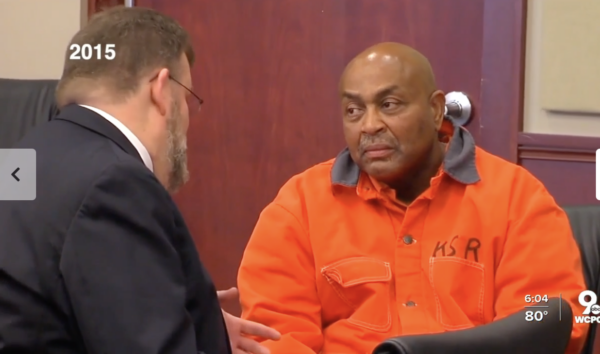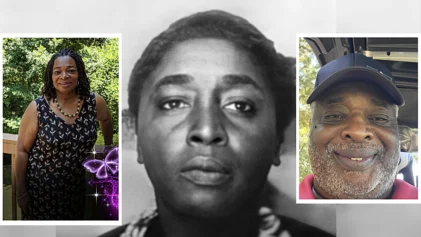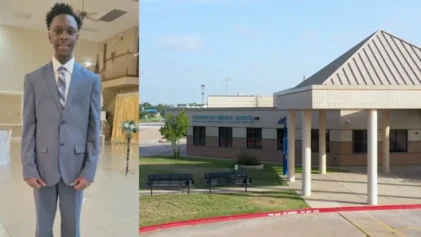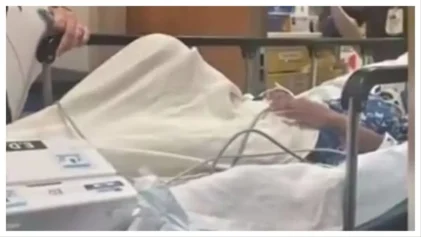A man who spent 28 years in prison for murder until DNA evidence cleared him as the perpetrator has died before a jury could decide the fate of his wrongful conviction lawsuit. His attorney and loved ones are vowing to continue to seek justice in his name.
William “Ricky” Virgil’s 2016 federal civil case against two former Newport, Kentucky, police officers who allegedly framed him was scheduled to go to trial last August, but a judge delayed the proceedings to allow the officers to pursue an immunity claim in a higher court.

Virgil’s attorney Elliot Slosar told a federal court last summer he feared that at 70 years old, his client could die before he gets a chance to confront the officers.
“People do not live forever,” Slosar said when U.S. District Court Judge David Bunning postponed the case in July. “Justice delayed is justice denied. Justice frivolously delayed is even worse.”
Virgil’s lawsuit called for monetary compensation from the cities of Norwood, Cincinnati and Newport and officers and their police departments for the years he spent in prison. The detectives who allegedly fabricated a case against Virgil argued they have qualified immunity.
Bunning, who over the years dismissed parts of Virgil’s lawsuit against the cities of Norwood and Cincinnati, agreed in July that the two former Newport cops’ immunity argument should be heard in court before a trial. Virgil died in January.
“All William ever wanted was a fair day in court. He never got that,” Slosar said. “The fact that William Virgil couldn’t live to see justice is a reminder of how grave their misconduct is and how much they should pay for it.”
Virgil was convicted for the murder of his lover in 1988 based on jailhouse snitch testimony and circumstantial evidence. Retha Welch, a psychiatric nurse, was raped and stabbed 28 times, struck on the head and left for dead on her bathroom floor.
Virgil met Welch while she was ministering to inmates in jail, and he said they were in relationship when she died. Virgil had recently been released from prison when Welch was killed.
Virgil claimed his innocence from the beginning.
With the help of the Kentucky Innocence Project, a court ordered a review of DNA in the case in 2010. DNA from the vaginal swab and hair found at the scene excluded Virgil as the killer. In 2015, the court granted Virgil a new trial. The key witness in the case came forward and said he was coerced by detectives to testify against Virgil.
Virgil’s former cellmate Joe Womack said Newport police detective Norman Wagner gave him cash and details of the case and promised to write a favorable letter to the parole board in exchange for his testimony.
In light of the new evidence, a judge threw out Virgil’s conviction. When a grand jury declined to indict Virgil for the crime a second time, a prosecutor threw out all charges against Virgil.
According to reports, two witnesses for the civil case said police identified another suspect in the case even though authorities maintained that Virgil was the only one.
Two days before Welch’s body was discovered by a coworker, Newport Police fatally shot Isaac Grubbs who was armed with a knife. The medical examiner estimated that Welch was killed two to three days before she was found. Grubbs’ knife was entered into the exhibit in Virgil’s trial.
Lester Caudill, one of the officers who shot Grubbs, said under oath, he found out that Grubbs was a suspect in Welch’s murder after the shooting. Prosecutors destroyed Grubbs’ knife in 2005 but left two other knives included in the evidence.
The Newport officers’ appeal is now before the U.S. Sixth Circuit Court of Appeals. A trial may not take place until sometime in 2023, according to reports.
An attorney for the officers said they have a fundamental right to a review by the higher court.
“Mr. Virgil’s unfortunate death does not impact my clients’ fervent belief that they have been falsely accused of depriving Mr. Virgil of a fair trial for the murder of Retha Welch,” attorney Jeff Mando said. “As dedicated law enforcement officers in the community with excellent service records, they are confident that the facts and evidence will vindicate them, and that justice will prevail.”
Virgil’s lawyer, Slosar, said there is “a genuine psychological value” in a verdict that would acknowledge “the wrong which has been done” to Virgil.
Virgil’s cousin Jeri Colemon will serve as his personal representative in court, but Slosar has vowed to keep an empty chair at trial in honor of him.
“There’s such interesting racial undertones with how William Virgil got wrongfully convicted,” Slosar said. “You have a white victim who suffered a tragic death and the police buried the evidence against white alternate suspects to frame a Black man for a crime he did not commit,”


